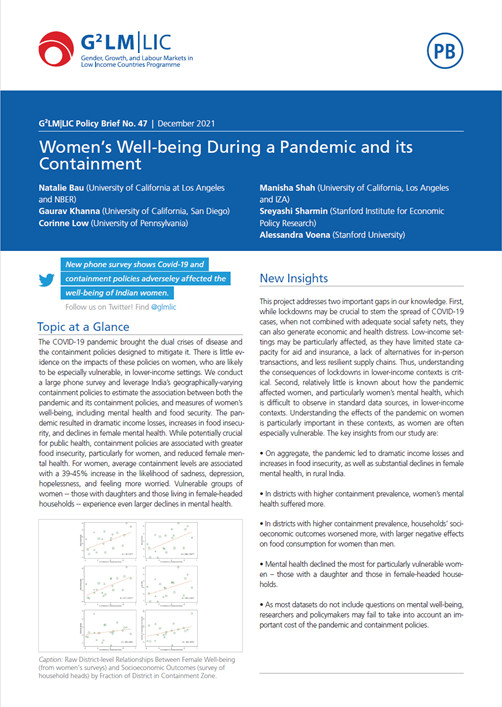The COVID-19 pandemic brought the dual crises of disease and the containment policies designed to mitigate it. There is little evidence on the impacts of these policies on women, who are likely to be especially vulnerable, in lower-income settings. We conduct a large phone survey and leverage India’s geographically-varying containment policies to estimate the association between both the pandemic and its containment policies, and measures of women’s well-being, including mental health and food security. The pandemic resulted in dramatic income losses, increases in food insecurity, and declines in female mental health. While potentially crucial for public health, containment policies are associated with greater food insecurity, particularly for women, and reduced female mental health. For women, average containment levels are associated with a 39-45% increase in the likelihood of sadness, depression, hopelessness, and feeling more worried. Vulnerable groups of women — those with daughters and those living in female-headed households — experience even larger declines in mental health.
